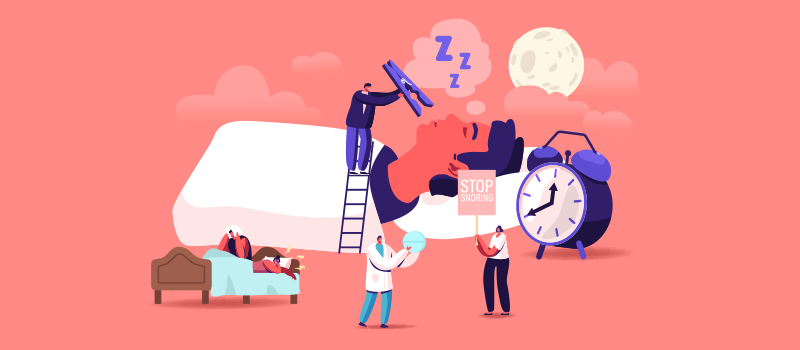What’s the Buzz
The Bee Healthy Blog
How Much Ambien Can I Take Safely?

Ambien is the brand name of the generic medication zolpidem tartrate. It is a prescription sedative-hypnotic medication usually used for the short-term treatment of insomnia. However, extended use of Ambien is not uncommon, depending on the patient’s medical history and the prescriber’s clinical judgment. This medication helps you fall asleep faster, stay asleep longer, and reduce the number of awakenings during sleep. However, like with any other medication, zolpidem treatment carries some risks.
This article will provide information about Ambien, including the recommended dose, adverse effects, and the associated risks of Ambien.
How does Ambien make you sleep?
Ambien (zolpidem tartrate) affects the brain’s chemistry. Specifically, Ambien binds to a specific site of the GABA receptors in the brain. Ambien’s mechanism of action slows down brain activity, in turn, helping you fall asleep faster while improving sleep quality.
What is the recommended dose of Ambien?
Ideally, doctors prescribing Ambien (zolpidem tartrate) use the lowest effective dose for the shortest possible time to treat insomnia.
Please keep in mind that this dose recommendation is specifically for the immediate-release Ambien, and not for other dosage forms such as extended-release tablets or oral spray.
The recommended initial dose is 5 or 10 mg per day for men and 5 mg for women. The maximum dose of Ambien is 10 mg daily.
The recommended dose for elderly patients and patients with liver disease is 5 mg daily. Lower doses of Ambien may be necessary for people taking other drugs and CNS depressants such as opioids and alcohol.
If insomnia does not respond to Ambien after 7 to 10 days, you may need to be evaluated for other underlying psychiatric or physical conditions.
What’s the difference between Ambien and Ambien CR?
Ambien is the brand name of the generic drug zolpidem tartrate. An Ambien tablet comes in 5-mg and 10-mg strengths and is available in immediate-release and extended-release forms.
Ambien is the immediate-release tablet, and Ambien CR is the extended-release tablet. The immediate-release tablets are used to treat insomnia in people who have trouble falling asleep. Ambien CR extended-release tablets are the long-acting form, and they are helpful for people who have trouble falling asleep and staying asleep.
Zolpidem tartrate is also available under other brand names and dosage forms, such as sublingual tablets (Intermezzo, Edluar) and oral spray (Zolpimist).
What are some precautions before starting Ambien?
Before starting Ambien, give your doctor and pharmacist a complete list of your medications, including prescription drugs, over-the-counter medicines, supplements, and herbal products. This can help avoid dangerous drug interactions.
Tell your doctor if you are pregnant. Also, tell your doctor if you have a history of substance abuse, depression, other mental illnesses, sleep apnea (heavy snoring), breathing problems, lung disease, kidney disease, or liver disease.
Ambien is not approved for use in patients under the age of 18.
How to take Ambien?
- Follow the instructions on your prescription label and take the Ambien dose exactly as instructed by your healthcare professional. Do not take it more frequently or for longer than prescribed. Ambien has habit-forming properties. Misuse of this medication can increase the risk of dependence, addiction, overdose, and even death.
- You should take a single dose of Ambien as needed for sleep at bedtime; do not take it more than once in 24 hours.
- Take the Ambien oral tablet immediately before bedtime. You will probably feel sleepy very quickly after taking this medication. This medication is designed to give you a full night’s sleep; therefore, if you take Ambien, you should plan to have at least 7- 8 hours of sleep before your planned waking-up time. Intermezzo, the sublingual tablets, has a shorter duration of action; therefore, only 4 hours until the planned wake-up time is required with this specific product. Ask your pharmacist if you are not sure which Ambien you are taking.
- After taking Ambien, you may experience extreme drowsiness and decreased alertness if you wake up too soon.
- Avoid taking Ambien with a meal or immediately after eating food because this can slow down the effects of the medication.
- Swallow Ambien CR (extended-release tablets) whole. Do not chew, crush, or split these tablets.
- Taking another dose of Ambien in the middle of the night is not recommended. Also, you should not take more than one type of sleeping pill on the same night.
Can Ambien be taken long-term?
Ambien is used for the short-term treatment of insomnia. You should not take Ambien for longer than two weeks. Taking Ambien for more than two weeks can increase your risk of physical dependence and tolerance, meaning Ambien will not work as well as initially. You should discuss the risks of taking Ambien for longer than two weeks and other long-term treatment options.
Call your doctor if your sleep problems do not improve within 7-10 days of starting Ambien.
How to safely come off Ambien?
Do not discontinue Ambien without talking to your doctor first, especially if you have been taking it for over two weeks. Abrupt discontinuation of Ambien can lead to unpleasant symptoms due to withdrawal effects. You might experience difficulties falling or staying asleep for the first few nights after discontinuing Ambien, however, this will improve over time.
What are the common side effects of Ambien?
Ambien can cause drowsiness, dizziness, fatigue, headache, and a “drugged feeling” with poor balance and unsteady walking. It can also cause gastrointestinal side effects such as nausea, gas, diarrhea, constipation, stomach pain, heartburn, and changes in appetite. Other possible side effects of Ambien include dry mouth, ringing in the ears, numbness and tingling in the hands or feet, muscle cramps, joint pain, memory loss, and heavy menstrual bleeding.
Rarely Ambien can lead to a more serious adverse reaction, such as an allergic reaction. You should seek emergency medical care if you have signs and symptoms such as rash, hives, swelling of the face, or difficulty breathing or swallowing.
What are the risks of taking Ambien?
Ambien is a Schedule IV controlled substance due to its low potential for abuse and low-risk physical dependence. It is possible to overdose on Ambien with deadly consequences.
This medication causes a slowing down of brain activity (CNS depressant effects). Ambien can, therefore, lead to extreme drowsiness and impaired driving ability. A lack of complete mental alertness can lead to serious injuries and accidents. These risks increase with higher doses of Ambien.
Withdrawal from Ambien can lead to uncomfortable symptoms if the medication is discontinued suddenly.
Other potentially dangerous drug effect includes an increased risk of complex sleep behaviors such as sleep-driving. Clinical trials found that the risk of these abnormal behaviors was higher in people who drank alcohol or took other CNS depressants along with Ambien. Other activities such as sleep-eating, walking, or having sex have occurred with people taking Ambien who do not have any memory of these activities later on. If this ever happens to you or someone you know, Ambien must be discontinued immediately and you should discuss other treatment options for insomnia with your doctor.
Ambien can cause worsening depression and/or suicidal thinking.
Lastly, Ambien should be used with caution in patients with compromised lung function, breathing disorders, and compromised liver function.
What happens in an Ambien overdose?
A drug overdose with Ambien can be lethal. Possible symptoms of an Ambien overdose may include extreme drowsiness, loss of consciousness, dangerously low heartbeat, and low breathing rate. In case of a suspected or known Ambien overdose, call 911 without delay for immediate medical attention, especially if a person has collapsed, is unconscious, has trouble breathing or a seizure, or can't be awakened. If it is certain that the Ambien overdose is not severe and the patient is drowsy but still conscious, contact the poison control helpline at 1-800-222-1222, then seek medical attention afterward if needed.
Seeking addiction treatment
Taking more Ambien than prescribed, i.e., taking higher doses, more frequent doses, or using Ambien for a longer duration than recommended by a healthcare provider, can lead to a physical dependence addiction. If you or a loved one is struggling with Ambien misuse or abuse, seeking addiction treatment can help.
Though the risks of potential for abuse and misuse of Ambien are relatively low, if you are still worried about the abuse potential of Ambien, talk to your doctor about other pharmacological and non-pharmacological treatment options for insomnia treatment.
References:











SOCIAL